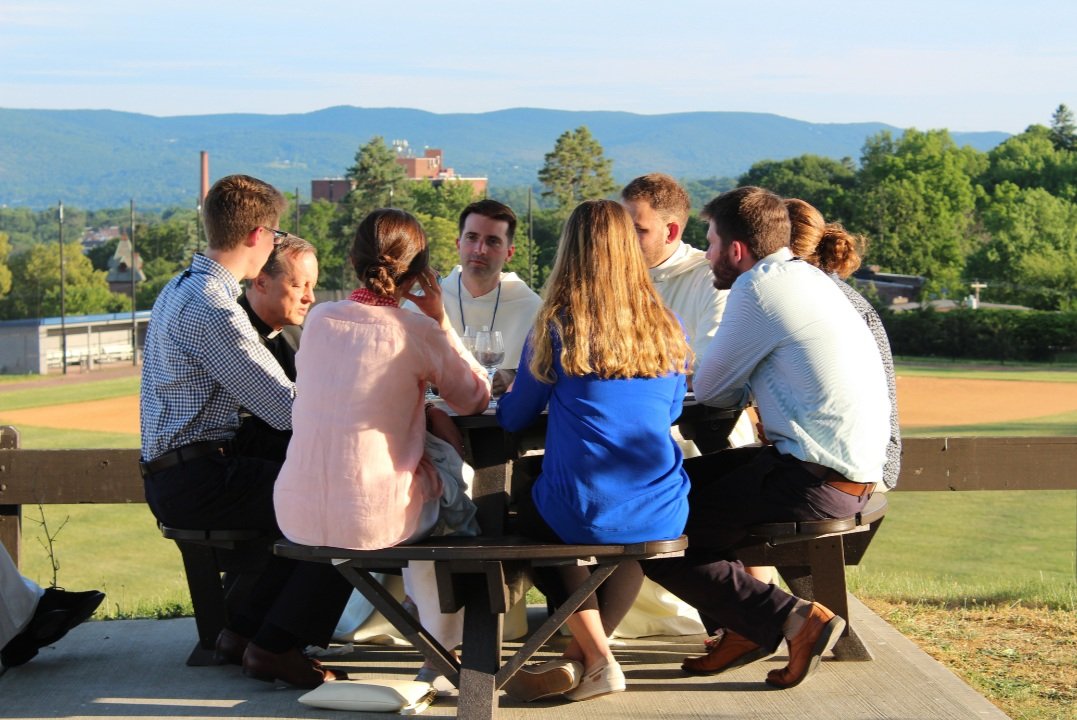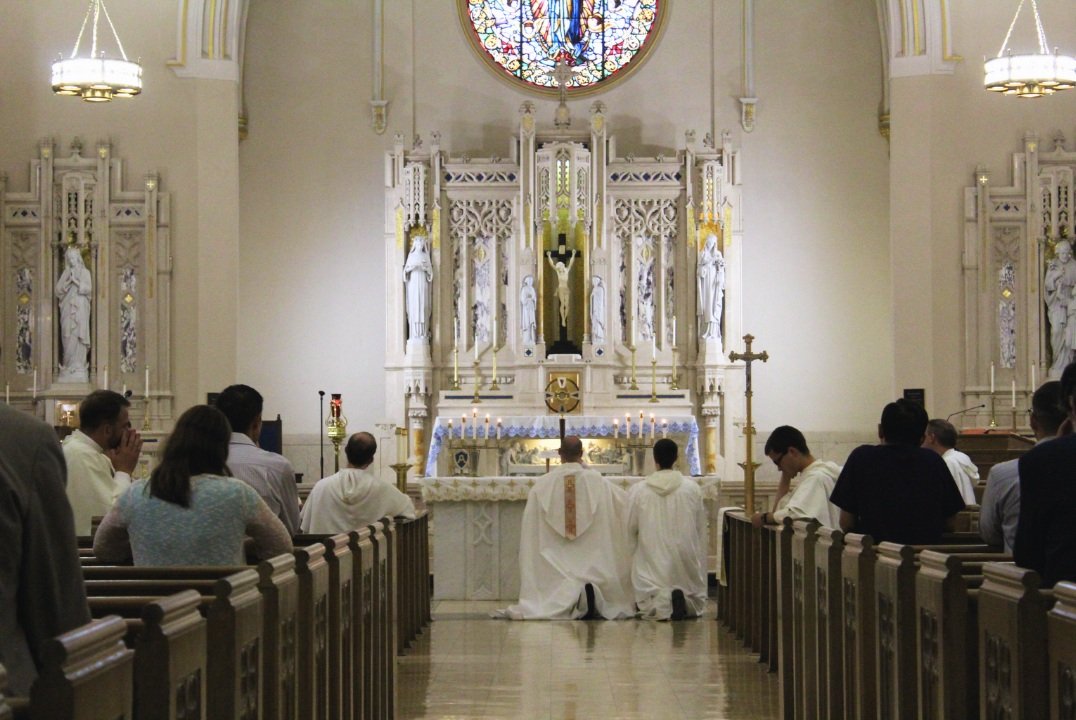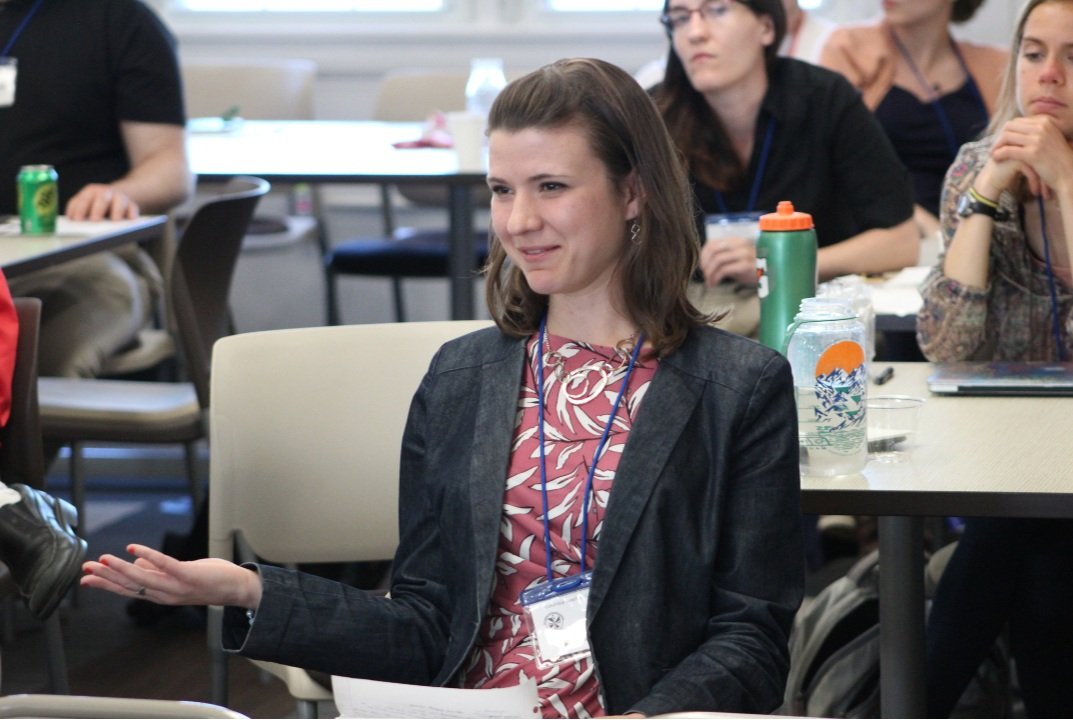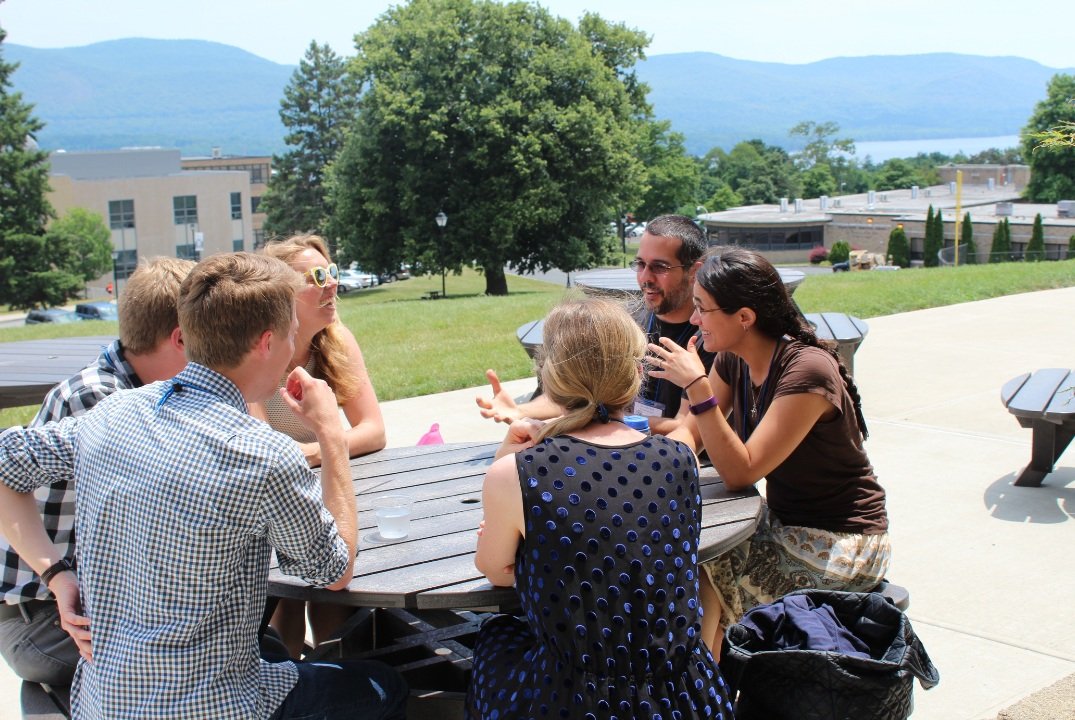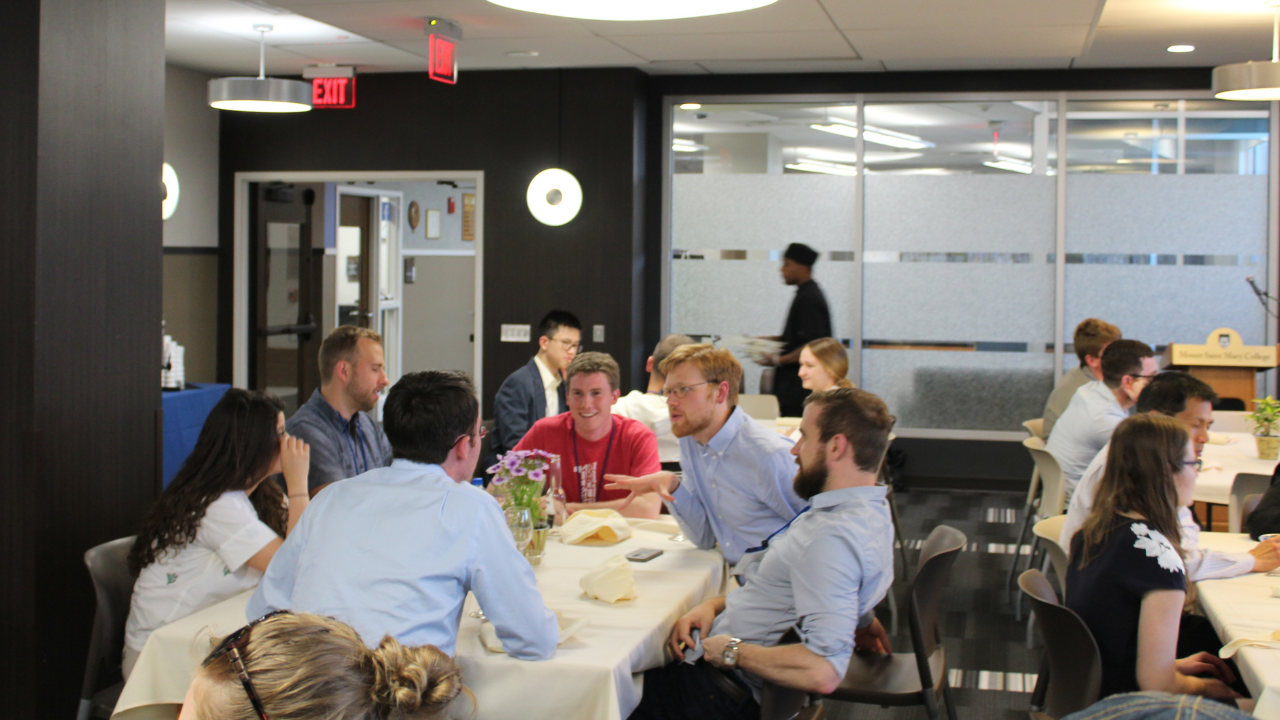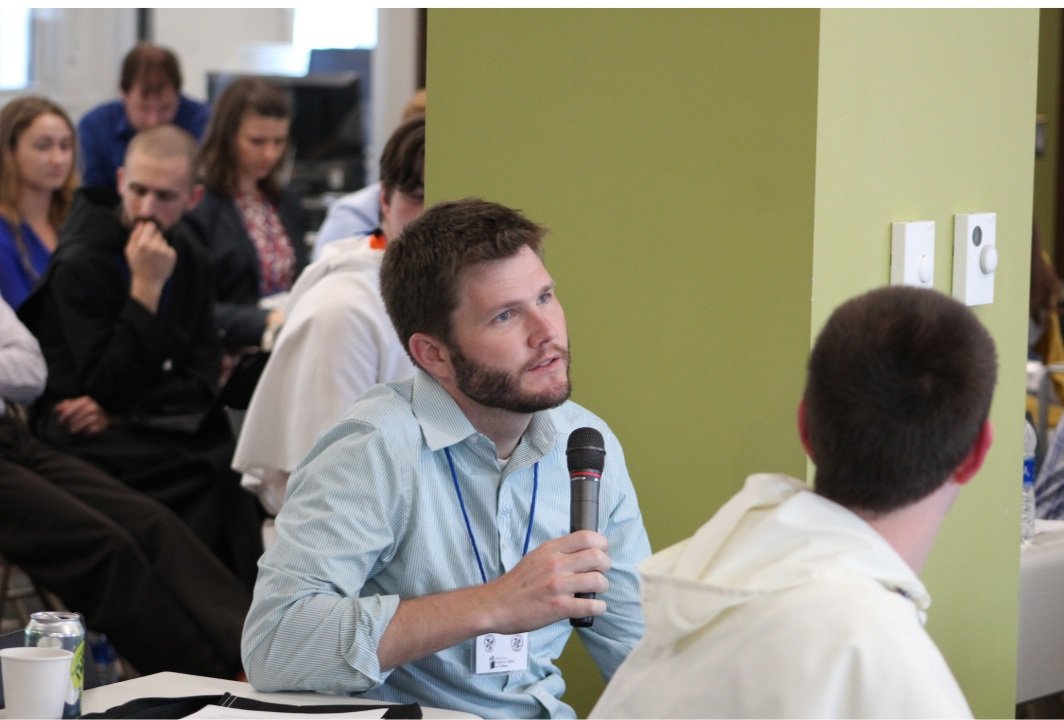12th Annual Aquinas Philosophy Workshop
Mount Saint Mary College | Newburgh, NY
Wednesday, May 31 - Sunday, June 4, 2023
Each summer the Thomistic Institute sponsors a four-day workshop for graduate students, advanced undergraduate students and lovers of philosophy. The conference features renowned presenters from prestigious universities around the world and will return this year to Mount Saint Mary College in Newburgh, NY. The topic for the 12th Annual Summer Philosophy Workshop is "Aquinas on Evil.”
This workshop is co-sponsored by the Catholic and Dominican Institute.
Registration
Registration is open to graduate students, advanced undergraduates, faculty, and all non-student lovers of wisdom.
Registrations for the workshop have closed.
Registration:
Registration fees cover all meals during the conference, lodging at Mount St. Mary College, lecture sessions, discussion panels, conference materials, and recreations.
Non-student Registration:
Single-occupancy: $445
Student Registration:
Double-occupancy: $365
Single-occupancy: $395
Apply for a Scholarship
The deadline for scholarships has passed.
Photos From Previous Years…
Call for Papers
The Thomistic Institute invites graduate students in philosophy, theology, religious studies, medieval studies, and related disciplines to submit papers for this conference related to the philosophical consideration of evil. Paper proposals may be about questions related to the metaphysics of evil, the problem of evil, sin and virtue, evil in society, and other topics related to evil in general. We will privilege papers in the Thomist tradition, but will consider papers related to other ancient and medieval authors as well as topics related to contemporary philosophy of religion and metaphysics.
The deadline for paper submissions has passed.
General Schedule of Events
A detailed schedule will be shared with registrants.
Wednesday, May 31st
3-6 PM| Registration
Thursday, June 1st
Session 1 | Fr. James Brent, OP “Evil as Privation”
Session 2 | Graduate Student Panel
Session 3 | Fr. James Brent, OP “Types of Evil in Aquinas”
Session 4 | Graduate Student Panel
3-5 PM | Registration
6 PM | Welcoming Dinner & Cocktails
Friday, June 2nd
Session 5 | Prof. Thomas Osborne “God’s Permission of Moral Evil”
Session 6 | Prof. Candace Vogler “Vice and Sin I”
Session 7 | Prof. Steven Jensen “Vice and Sin II”
Session 8 | Discussion Panel
Saturday, June 3rd
Session 9 | Prof. V. Bradley Lewis “Punishment”
Session 10 | Prof. Michael Gorman “Guilt”
Session 11 | Prof. Joshua Hochschild “Social Evil?”
Session 12 | Discussion Panel
Sunday, June 4th
7 AM | Traveler’s Mass
9 AM | Closing Mass
8:30 - 11:30am | Departure
About the Speakers
Michael Gorman (Catholic University of America) is professor of philosophy at The Catholic University of America. He has doctorates in philosophy and theology. He has authored over thirty-five academic papers and a book entitled Aquinas on the Metaphysics of the Hypostatic Union (Cambridge University Press, 2017). His main interests are metaphysics, human nature, and ethics. He is working on a textbook in metaphysics and on a short book on human nature and human dignity.
Thomas Osborne (University of St. Thomas) is Professor of Philosophy and Chair of the Department of Philosophy, and a member of the Center for Thomistic Studies, University of St. Thomas (Houston). He has written many articles on medieval and late-scholastic philosophy and other topics, and is the author of Love of Self and Love of God in Thirteenth-Century Ethics (2005), Human Action in Thomas Aquinas, John Duns Scotus, and WIlliam of Ockham (2014), and Aquinas's Ethics (2020).
Candace Vogler (University of Chicago) is the David B. and Clara E. Stern Professor of Philosophy and Professor in the College at the University of Chicago, and Principal Investigator on "Virtue, Happiness, and the Meaning of Life," a project funded by the John Templeton Foundation. She has authored two books, John Stuart Mill's Deliberative Landscape: An Essay in Moral Psychology (Routledge, 2001) and Reasonably Vicious (Harvard University Press, 2002), and essays in ethics, social and political philosophy, philosophy and literature, cinema, psychoanalysis, gender studies, sexuality studies, and other areas. Her research interests are in practical philosophy (particularly the strand of work in moral philosophy indebted to Elizabeth Anscombe), practical reason, Kant's ethics, Marx, and neo-Aristotelian naturalism.
Steven Jensen (University of St. Thomas) received his PhD from the University of Notre Dame in 1993. Jensen’s areas of research include ethics, medieval philosophy, Thomas Aquinas, action theory, biomedical ethics, natural law, and human dignity. He can speak on philosophy, biomedical ethics, faith and reason, logic and Thomistic ethics. He is currently Professor of Philosophy at the University of St. Thomas in Houston.
V. Bradley Lewis (Catholic University of America) is associate professor in the School of Philosophy at Catholic University of America. He specializes in political and legal philosophy, especially that of the classical Greeks and in the Thomistic tradition, and is currently working on a book on the idea of the common good. In addition to these things he has served as a consultant on ethics to the federal government, testified before a congressional subcommittee about immigration, and currently serves as associate editor of the American Journal of Jurisprudence.
Joshua Hochschild (Mount St. Mary’s University) is Professor of Philosophy and Director of Philosophy, Politics and Economics at Mount St. Mary’s University, where he also served six years as the inaugural Dean of the College of Liberal Arts. His primary research is in medieval logic, metaphysics, and ethics, with broad interest in liberal education and the continuing relevance of the Catholic intellectual tradition. He is the author of The Semantics of Analogy: Rereading Cajetan’s De Nominum Analogia (2010), translator of Claude Panaccio’s Mental Language: From Plato to William of Ockham (2017), and co-author of A Mind at Peace: Reclaiming an Ordered Soul in the Age of Distraction (2017). His writing has appeared in First Things, Commonweal, Modern Age and the Wall Street Journal. For 2020-21 he served as President of the American Catholic Philosophical Association.
Fr. James Brent, O.P. (Dominican House of Studies) was born and raised in Michigan. He pursued his undergraduate and graduate studies in Philosophy, and completed his doctorate in Philosophy at Saint Louis University on the epistemic status of Christian beliefs according to Saint Thomas Aquinas. He has articles in the Internet Encyclopedia of Philosophy on Natural Theology, in the Oxford Handbook of Thomas Aquinas on “God’s Knowledge and Will”, and an article forthcoming on “Thomas Aquinas” in the Oxford Handbook of the Epistemology of Theology. He earned his STL from the Pontifical Faculty of the Immaculate Conception, and was ordained a priest in the same year. He taught in the School of Philosophy at The Catholic University of America from 2010- 2014, and spent the year of 2014-2015 doing full time itinerant preaching on college campuses across the United States.

